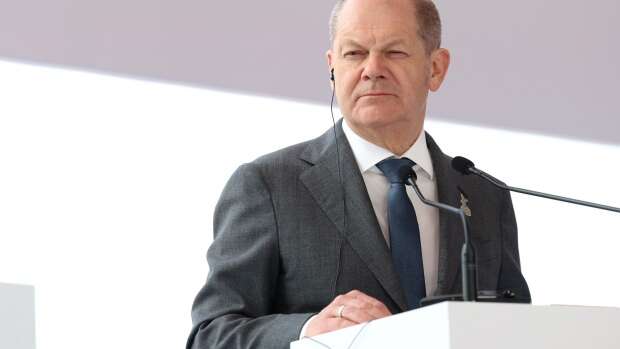German Chancellor Olaf Scholz urged the European Union to reduce its reliance on China, accusing the government in Beijing of increasingly acting as a rival and competitor rather than a partner, according to Bloomberg.
Speaking to EU lawmakers in Strasbourg to mark Europe Day, Scholz laid out his vision of a reformed and enlarged bloc that must speak with one voice on issues including ties with China if it wants to play a leading global role.
“Our relationship with China is aptly described by the triad ‘partner, competitor, systemic rival’ – although without a doubt rivalry and competition on China’s part have increased,” Scholz said. “The EU is aware of this development and is reacting accordingly.”
Scholz said he agreed with European Commission President Ursula von der Leyen that the 27-nation bloc should not aim for an immediate decoupling from China, but implement a “smart derisking.”
The EU should reach out to countries of the so-called global south and offer new partnerships and trade deals which create jobs and wealth on the ground in Africa, Asia and South America, he added. This could also help to reduce economic dependencies on China, Scholz argued.
China is Germany’s most important trading partner and cutting entrenched business ties would hurt Europe’s largest economy.
At the same time, tensions with Beijing have increased due to China’s increasingly aggressive stance toward Taiwan. Russia’s attack on Ukraine exposed Germany’s over-reliance on Russian fossil fuels and Scholz and his government are keen to avoid a similar error with China in areas including technology and raw materials.
The EEAS, the EU’s foreign affairs arm, is working on a new strategy for the bloc toward China which will be discussed by member states.
Echoing the main points from a speech in Prague last August, Scholz called for an overhaul of EU decision-making and reiterated a proposal that majority voting should be used for decisions in areas like foreign policy and taxes, instead of a current requirement for unanimity.
The EU must keep its promises on enlargement, particularly to Western Balkan nations which have been waiting to join for around two decades, he added.


